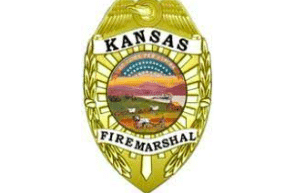Interesting approach!
Hemp Grower reports on all the latest legislative changes to / for the hemp sector in the state
Kansas Gov. Laura Kelly recently signed into law House Bill 2244, making several changes to the state’s hemp program.
Chief among those changes is transferring hemp processing regulatory authority over to the state fire marshal’s office.
According to the bill: “In addition to any other remedy that the state fire marshal may exercise pursuant to the Kansas fire prevention code, … the state fire marshal may issue a stop sale, use or removal order whenever the state fire marshal reasonably believes that hemp products are being produced, sold or distributed in violation of the commercial industrial hemp act or any rules and regulations promulgated thereunder.”
The move comes as a way to transfer hemp regulatory authority over to law enforcement. In the March/April 2021 issue of The Journal of the Kansas Bar Association, Kenneth Titus and Stephanie Murray, both with the Kansas Department of Agriculture (KDA), explained why the state made the move.
“Hemp processing can result in by-products with a high THC [tetrahydrocannabinol] concentration, which, in addition to being a controlled substance, are created by processing systems that can also be highly explosive, creating an obvious public health risk,” they write. “Due to these concerns, law enforcement groups were the primary proponent for Kansas requiring strict regulation of hemp processors.”
Law enforcement expressed concerns that the KDA did not have the resources or experience needed to enforce processing laws. So, the state decided to move regulatory authority over to the fire marshal, as the office is experienced in regulating similar equipment, and their agents are law enforcement, the authors write.
“The reality is the Kansas Department of Agriculture has been scared so much by law enforcement, particularly KBI [the Kansas Bureau of Investigation],” says Kelly Rippel, co-founder of Kansans for Hemp and appointed member KDA’s Industrial Hemp Advisory Board. “KBI has had its thumb on hemp because they equate it to marijuana. … We’ve got some serious paradigm shifts that still have to happen with our law enforcement officials.”
Despite law enforcement now being further involved in hemp regulation in the state, some are unbothered by working with the fire marshal.
“My personal experience is that it’s a great thing. We have a great relationship with the state fire marshal,” says Melissa Nelson-Baldwin, co-founder of Kansas-based South Bend Industrial Hemp (SBIH), which not only grows its own hemp for cannabidiol (CBD) and industrial products but also recently opened a hemp fiber processing facility.
Nelson-Baldwin says the current state fire marshal, Doug Jorgensen, recently inspected SBIH’s new facility. And while she says he wasn’t well-versed on industrial hemp or processing, she spent “a lot of time educating him” on the plant and the process.
“I think the most exciting thing to us is that he’s interested in learning,” Nelson-Baldwin says. “He’s excited to learn and grow the industry in Kansas, and he’s willing to listen to suggestions.”
Other Changes Made
Rippel is taking a wait-and-see approach to how the fire marshal’s authority over hemp will pan out. But overall, Rippel says H.B. 2244 was “a good stepping stone for the commercial side” of hemp, thanks in part to amendments he helped add.
One of those amendments was allowing full-spectrum products to enter the market. Previously, CBD products could not contain any THC. Now, they can contain up to the federally legal limit of 0.3% THC.
The bill also expanded disposal options for hemp that tests above the legal THC limit to align with the U.S. Department of Agriculture’s final rule on hemp, which allows for crop remediation. However, Rippel says more specific language needs to be added, and other parts of the state’s hemp program still need to be updated to align with the final rule.
H.B. 2244 also raised annual processing registration fees from $200 to $1,000.

















